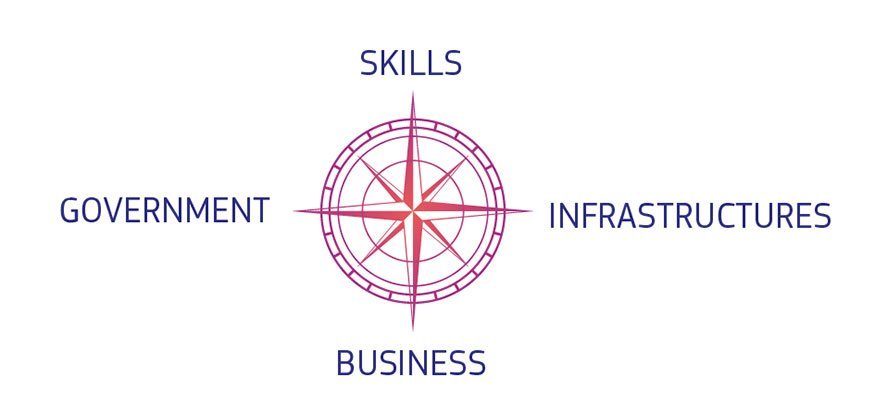The European Commission translates the EU’s digital ambitions for 2030 by proposing a Digital Compass. By and large, the EU aims to be digitally sovereign in an open and interconnected world.
Through the Digital Compass, the Commission clearly presents the vision, targets and avenues for a successful digital transformation within Europe by 2030. It focuses on four cardinal points: digitally-skilled citizens, secure and sustainable digital infrastructures, the digital transformation of businesses, and the digitalization of public services.
By 2030, at least 80 percent of all adults should have basic digital skills, and there should be 20 million employed ICT specialists in the EU. Moreover, within this decade, all EU households should have gigabit connectivity and all populated areas should be covered by 5G. As a matter of fact, Europe should have its first quantum computer by 2030.
In addition, the Commission proposed that by 2030, three out of four companies should use cloud computing services, big data, and artificial intelligence (AI). As part of the public services’ digitalization, all citizens will have access to their e-medical records and 80 percent should use an eID solution.
The Compass sets out a robust joint governance structure with the Member States based on a monitoring system with annual reporting in the form of traffic lights. The targets will be enshrined in a Policy Programme to be agreed with the European Parliament and the Council.
Commissioner for the Internal Market Thierry Breton said: “As a continent, Europe has to ensure that its citizens and businesses have access to a choice of state-of-the-art technologies that will make their life better, safer, and even greener – provided they also have the skills to use them. In the post-pandemic world, this is how we will shape together with a resilient and digitally sovereign Europe. This is Europe's Digital Decade.”

